||| FROM GEORGE POST |||
Over the years I have discovered a simple question that helps me sort my way through the often daunting onslaught of information I am exposed to daily. Even if one only has a casual knowledge of the situation here on Earth, it’s often hard to avoid a nagging feeling of discomfort or sadness. It can hang over even a normally joyous event, like a birth. I’m reminded of Carl Jung’s concept of the “collective unconscious” when I think of how our combined, often unspoken, uneasiness over issues like climate change, over population, species extinction, pollution, artificial intelligence, pandemics, polarization, mass shootings and war has created a cloud of anxiety looming over our lives. Not fun. Not healthy. So the question I ask myself, to help me confront this reality and hopefully, calmly, avoid a sense of helplessness is…What can I do about it?
Realistically, most all of these troublesome issues are well beyond any influence I might hope to effect. But I can reduce my carbon footprint. I can try not to pollute. I can get vaccinated. I can vote for more peaceful, sustainable policies. I can grow food and recycle packaging and compost food waste. To help promote these practices, I used to portray a space based Earth doctor in my local school, examining through a telescope earth’s many obvious ailments. In that skit I diagnosed the poor earth as suffering from chronic multiple dumps and acute consumption. Here on Orcas Island we were in the process of closing the local dump, so doing that became our part of healing the planet. It was something we could do.
Then faced with the expense of transporting our waste to distant landfills, waste reduction, reuse and recycling were thrust into our community awareness as necessary and beneficial endeavors. This began the practice of separating bottles, cans, paper and cardboard from the waste stream in order to reclaim some of their value in the emerging recycling markets. To provide a place for any unwanted but still useful materials, we opened the Exchange at the county transfer station in 1983. It soon became clear that there was indeed a huge quantity of useful and valuable goods that when made publicly available instead of stored in closets and garages or worse added to our waste, constituted an important asset to our island economy and to many individuals. This whole transition to “curing the dumps” has had the added benefit of giving people a sense of doing something good for their community and the earth.
As the once popular bumper sticker encouraged “Think globally, act locally.”
Today, forty years later, the world’s health seems even more fragile and I ask the same question: what can I do about it? Again the answer is, not much. But I have learned from the experience of the Exchange. I can see another need and another opportunity to add to the vitality of the Orcas community. This time its not about making all the unused materials available to everyone. This time its about making all of our individual human and social resources available to everyone. This time the disease isn’t the dumps or consumption, its a combination of social, economic, technological and emotional symptoms that I’m diagnosing as creeping disunity. It affects a community by eroding its sense of itself, separating and diminishing its connections, weakening its vitality.
The word community can refer to a geographical region or in our case an island, but there really needs to be some aspect of mutual recognition by the inhabitants in addition to physical proximity that makes them community members. A functioning, vital community cannot consist of anonymous individuals, they need to join others as members and cooperate and share for their mutual benefit.
Except possibly for avowed hermits, we all need to belong to some community to even survive. I know I wouldn’t last very long without the goods, the services and the support I get from my family, my friends and my neighbors. So it is a given that my well being is dependent on the health and vitality of this Orcas community of which I am a willing member. And it’s my dependence on others that compels me to find a cure for creeping disunity. I need a vital community for my own health, happiness and security. To quote a pre bumper sticker saying,”United we stand, divided we fall”.
Let me describe the causes of creeping disunity and how they have affected the Orcas community in recent years, starting with the COVID pandemic.
Along with its obvious natural beauty and its appeal as an island retreat from the frantic pace of the mainland, the welcoming, tolerant Orcas community is a major reason we acknowledge our good fortune as residents here. Having multiple overlapping personal relationships with friends, neighbors, shop keepers, service providers and county employees: we resemble an extended family. But in early 2020 most of our personal contacts were shut down. We stayed at home and when we did go out we were unrecognizable behind masks. No more potlucks, no more dances, no public meetings. During the next two years we formed new habits of isolation and a reluctance to mingle with strangers. Many of our social connections were severed and have not been renewed. Creeping disunity.
Also during this period the ability and necessity to work remotely brought many newcomers to Orcas. They too stayed home and could not experience the island ways or make friends as they normally would have. This abnormality in the integration of new community members was also seriously and simultaneously exacerbated by several chronic technological influences.
First of all, the newcomers came to Orcas with cell phones and so did not get listed in the local phonebook as identifiable, accessible, new members of the community. This anonymity does not just affect newcomers. It’s a technological disconnect for the entire community. Before the advent of cellphones, contacting someone was just a matter of looking them up in the phonebook. Every person’s name, address and phone number and every business, every public service, every emergency contact was in that directory. No longer.
As the use and increased dependence on cellphones mushroomed, the county residential phone directory shrank in size from 91 pages in 2016 to 44 pages today. I counted 1436 landlines with a traditional 376 (Orcas) prefix out of a community of close to 6000. So in 2023 fewer than one quarter of us can be found in the directory. Many of us have lost a quick, reliable way to contact often longtime Orcas friends who have given up their landlines.
Cell phone users, however, unlike people with landlines, don’t get a phone directory. They can’t find even the one quarter of us that are in the directory. In this new cellphone world, easy, phone access to the Orcas community is limited by how many people you have shared your number with. That could be hundreds throughout the world, but how many are in your actual community? How many can you contact or can contact you if necessary? There is no directory of cellphone numbers nor a directory of Orcas residents. This technological, cultural, shift to cellphones is a prime example of creeping disunity. It is increasingly diminishing of our ability to connect with and to know our island neighbors. Try finding a number for the Exchange in the phonebook, if you have one.
Another unfortunate symptom is the diminished influence of newspapers in general and the Islands’ Sounder in particular. Newspapers are taking a beating from the internet in advertising revenue and have consequently pared their reporters to the bone. Many have closed up and many have been bought up in an effort to survive. The Sounder has 887 paid subscriptions to inform our 6000 Orcas residents. So our local newspaper reaches about 15% of us once a week. The Senior Center sends out a monthly newsletter to its members. OPALCO mails out its monthly “Ruralite” magazine. Many other organizations send periodic, printed newsletters to their members, but it is important to recognize that nearly all of this print information is also accessible on their websites, and that the internet has increasingly become the medium of choice and habit for both local and world information. And it’s easy to understand why that is.
The internet is a miracle. It gives us instant access to history, entertainment, any product, world events, all of human knowledge. Its inviting, it can tell where you are, it can save your life, it can connect you to family and friends anywhere in the world in real time. Yes, practically everything is available on the internet, but where on the internet? Take Orcas Island for example.There must be hundreds of sites that have some information about Orcas. Every organization, every business, every non-profit has a website.
We all have favorites, we select the ones we rely on for our community information. For news, I use theOrcasonian, others use the Sounder, many use various Facebook chat sites. But there is no single site that gives us timely, local community news like the ferry situation, the road conditions, weather reports, wildfire bulletins, covid outbreaks or parade times, where we can sense our wholeness as a community.
Yes, the internet allows us to choose our news, to create unique realities supported by those choices, to have numerous, virtual communities in the cloud. But the reality I’m concerned about is the one here on Orcas that is being dispersed by our access to the multitudes of possible sources of information about our community. Sadly and critically, amid this maze of websites, there is no common source that we all see that can identify and unify us. We have no “official” Orcas Island source of information, its scattered all over. Not good for community cohesion or cooperation.
For better or worse, land lines and newspapers will continue their decline and smart phones and the internet will dominate how we get information and stay in touch. If we really want to help cure creeping disunity, we need to take advantage of recent technological changes and not let the vitality of our community be diminished by their unintended consequences.
What if we used technology to unite us instead of to disperse us? What if we created and joined an online directory of our community members to restore the loss of the phonebook: a local, Orcas website, where we could find and contact each other, where we could also access all community services, businesses, websites, event schedules and emergency announcements on one site? Such a directory,(Orcapedia?), as well as being an inventory of the island’s citizens, businesses, websites and services, could insure that we all have a common source of information about the conditions and issues that affect our daily lives. In addition, if the site were widely used, it could afford us the ability to
conduct polls and to discuss and understand island issues in a transparent, timely and more legitimate forum than any we have today.
Using today’s technology to inform and unite us may be our single most effective way to combat creeping disunity and to strengthen the vitality of our Orcas community, especially in consideration of our ability to adapt to the many looming challenges from national and global events.
So, my question is still, what can I do about it?
I can ask my community to think about and discuss the benefits of sharing access to our collective sources of information. I can ask those who recognize these benefits to join me in identifying and mobilizing our skills, resources and will to establish an Orcas Island directory website. Contributing your thoughts or support is something YOU CAN DO.
Please contact me (geopost40@gmail.com) or phone 360-376-4887.



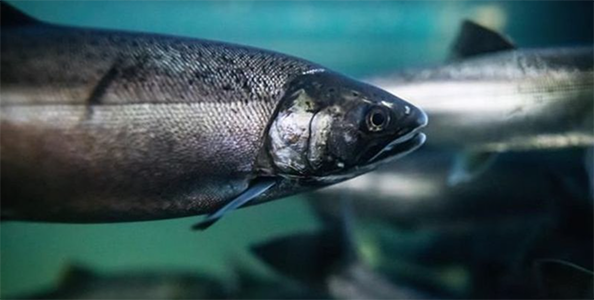
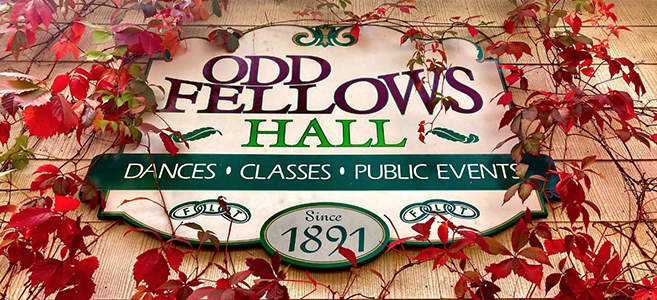
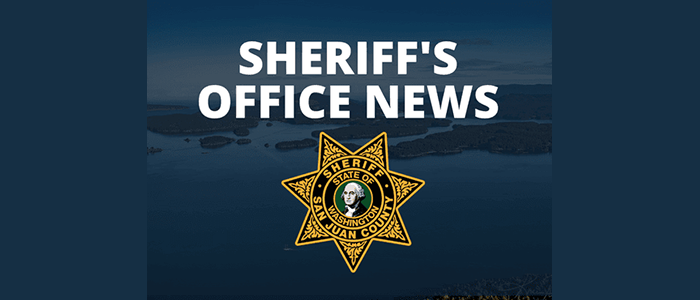

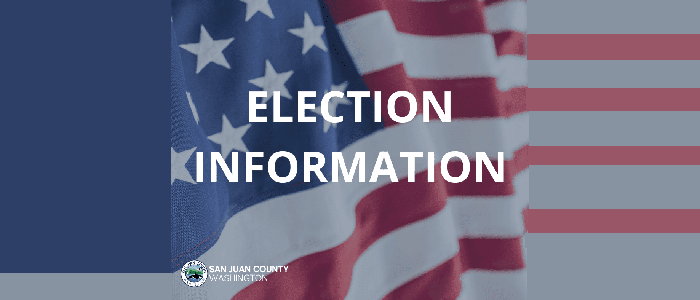
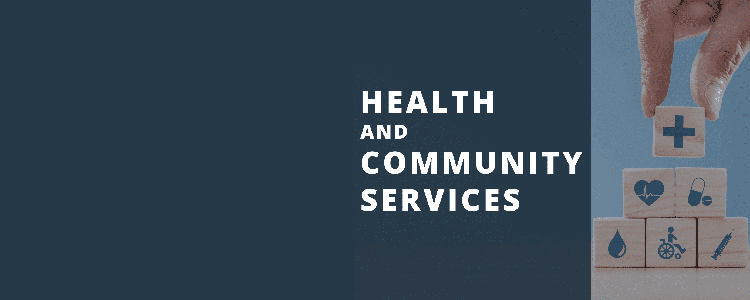
George…You are a master of both detail and the big picture.
Reading your article takes me back to the early ’90s when we shared a room at Camp Casey on Whidbey Island….along with 60 fellow islanders…when we participated in the weekend retreat which was Orcas’s first “Community Building Workshop”. I believe there were two subsequent CBWs which, as I recall, triggered monthly community meetings in the Madrona Room at Orcas Center.
Maybe it’s time for a re-boot…?…
The Sounder has been their own worst enemy. Their storylines are mostly poorly written while their research pales in comparison to reading stories on other online sites written by folks that actually pay attention to details.
Love your idea about a community directory.
Loved this thoughtful piece!
Yes.
Thank you, George.
George,
SO well said! … and so logical.
A community website containing information that has been diminished or no longer available.
A perfect solution.
Thank you!
The idea of an Orcapedia is a superb one, George, and we could start it with a directory of phone numbers as you suggest.
In fact, that’s how the World Wide Web got started at CERN in Geneva, Switzerland. Its first “killer app” was the CERN phone book!
On the other hand… I hope that people (me, for instance) can opt out of having our cell phone numbers published online. I truly do not want to open my phone to even more spam calls, texts and solicitations!
This could be done on an “opt-in” basis, where people add their cell phone or land line numbers as they individually choose. Or they could opt out and choose to remain isolated from the Orcas community. Isn’t that the ‘merican way?
Thea and others who are concerned about their privacy need to understand that the main purpose of a community directory is first to identify its members and its resources. If, as a member, you wish to share your contact information or skills or interests so much the better, a way to do that can be provided. Again, it is much the same as bringing your stuff to the Exchange so the community can take advantage of its value. Let’s not let the abuses of technology keep us from its benefits. Strengthening our community is a work in progress, it needs all the input and cooperation we can muster.
Keep your concerns and suggestions coming, together we can do this.
Thanks George. I think this is a great idea, and coming from one who I consider to be one of the more forward thinking “father’s of our community.”
That being said, “Or they could opt out and choose to remain isolated from the Orcas community.”
Yes, the freedom of choice is as American as apple pie, and having the choice of either “opting in, or opting out” in this endeavor would be a good exercise of this fundamental right. And though there may indeed be some who wish to remain isolated from the community, aye, from humanity itself… I don’t feel that it’s an accurate framing to judge those who, by taking advantage of this right in a desire to protect their privacy, as being equivocal to choosing to be “isolated from the Orcas community.”
There’s some in this thread who have lived here for 50 years or longer, who are quite tied into the community scene, who have their phone numbers well dispersed amongst those in their community circle, and who simply don’t feel the need to expose themselves to the additional scrutiny of those who might (who will) take advantage of such a site and seek to exploit it for profit. This makes total sense to me.
Personally, I don’t have a smart phone, I don’t want one, I have a love / hate relationship with my computer, and I’ll be in the phone book, (and this new site if it ever comes to pass), as long as there is one.
Inspirational, George! In its simplicity, here is a new season of reason and an updated vision that also inspires solutions . We are classified as social beings…yet as we “progress,” we see gadgets replacing togetherness and would we allow monkeys to define us better? Sharing? Supporting? I remain an Orcasite; though life has me elsewhere after my twenty years residence; for it was on a lovely return drive from Obstruction Pass to Eastsound when I was struck by the reality of that which had become My community; the warmth that gave; belonging and convenience in one. I believe an “Orcapedia” could become something akin to that and possibly more; for people do need people. AI is likely here to stay…but what is Artificial love?
“What if we created and joined an online directory….”
Wouldn’t the moment this happens we lose control over who has access to it… therefore diminishing its island-wide specificity? Wouldn’t it, at that moment become available to the entire internet, the entire world? What if harnessing this technology in an effort to unite us becomes a nightmare for those (I’m guessing most, if not all), who don’t particularly want the outside attention? Speaking for myself, one of the blessings of my cell phone is that it’s not on anybody’s list.
How ’bout instead of doing this online, folks that have cell phones and want to do so, put their information alongside the rest of us in the local phone book?
George, thank you for this piece.
I believe your suggestions are well stated and intended and do not disagree with how the internet/technology can become a place of division, but also serve as a vehicle of unification. It is upon each of us to use this tool like any other. It is your choice so use it wisely. I choose the pathos using it for good, and it does that for me in great ways. I am grateful for that.
I would ask that everyone take a deep reflective moment about whether they chose to put their personal cell phone number out into the ether. A simple Google search on this matter will give countless hits as to why this might be a very bad idea. We have to remember, you are not just sharing this information with your friends and neighbors on Orcas Island. You are sharing it with the entire world.
The New York Times
I Shared My Phone Number. I Learned I Shouldn’t Have.
Our personal tech columnist asked security researchers what they could find out about him from just his cellphone number. Quite a lot, it turns out.
https://www.nytimes.com/2019/08/15/technology/personaltech/i-shared-my-phone-number-i-learned-i-shouldnt-have.html